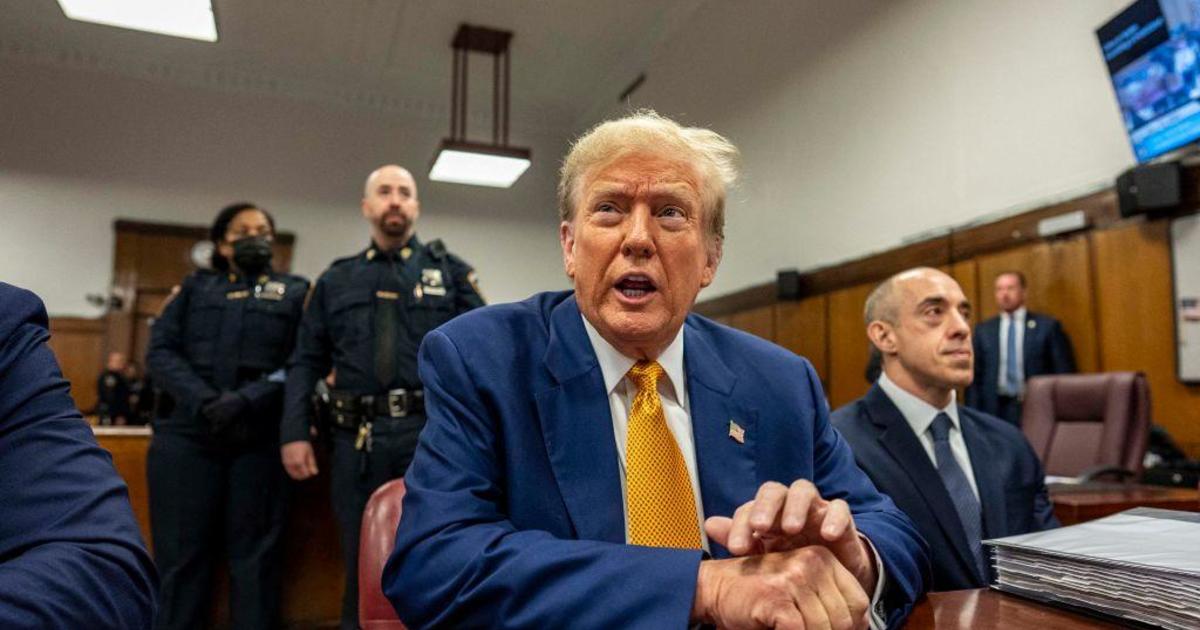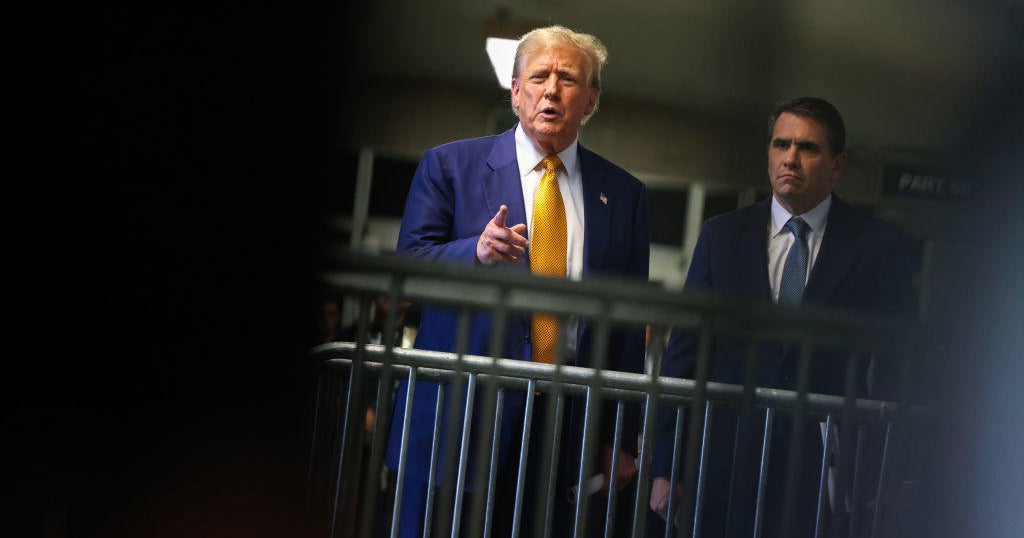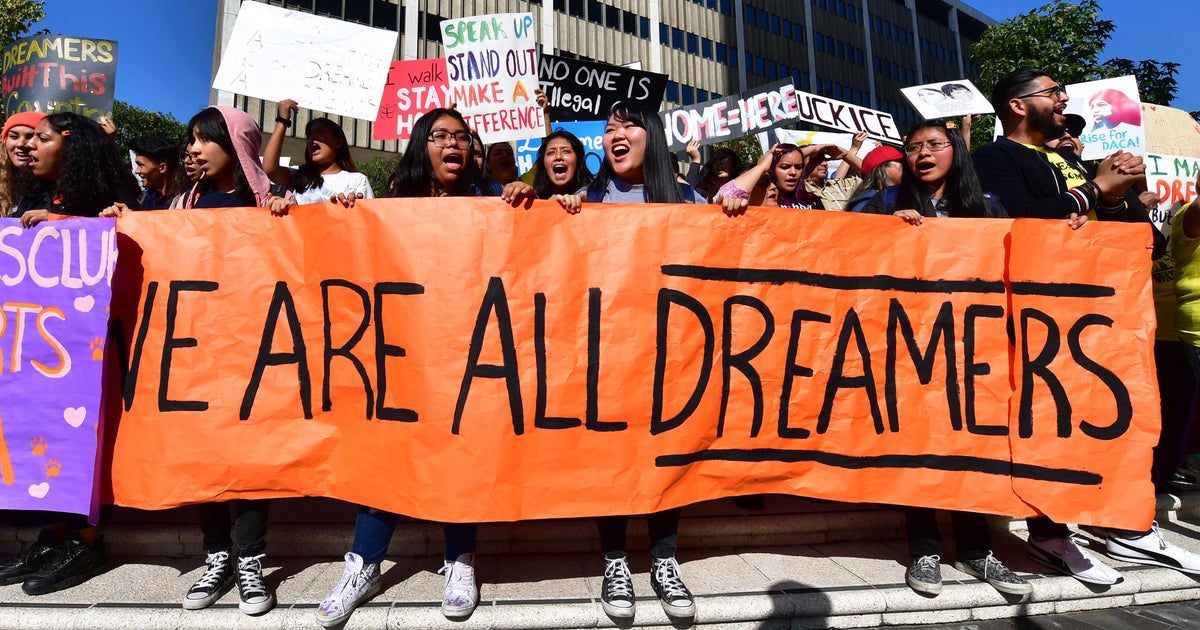Federal appeals court says Trump is not immune from civil lawsuits over Jan. 6 Capitol attack
Washington — A federal appeals court in Washington said Friday that former President Donald Trump is not currently entitled to broad immunity from civil lawsuits seeking to hold him accountable for actions surrounding the Jan. 6, 2021, assault on the U.S. Capitol.
The unanimous opinion from the three-judge panel for the U.S. Court of Appeals for the District of Columbia Circuit allows the cases against Trump to move forward and comes nearly a year after the judges weighed Trump's claims that he's entitled to sweeping immunity from the suits brought by a group of congressional Democrats and veteran Capitol Police officers, who seek civil damages for the harms they alleged to have suffered because of the Capitol attack.
"The sole issue before us is whether President Trump has demonstrated an entitlement to official-act immunity for his actions leading up to and on January 6 as alleged in the complaints," Chief Judge Sri Srinivasan wrote. "We answer no, at least at this stage of the proceedings."
The panel said that when a first-term president chooses to run for a second term, his campaign for reelection is not an official presidential act, and actions undertaken while campaigning to hold onto the presidency are done in his capacity as an office-seeker, rather than an office-holder.
"In his view, a president's speech on matters of public concern is invariably an official function, and he was engaged in that function when he spoke at the January 6 rally and in the leadup to that day," the judges said. "We cannot accept that rationale. While presidents are often exercising official responsibilities when they speak on matters of public concern, that is not always the case."
The president, Srinivasan said, "does not spend every minute of every day exercising official responsibilities. And when he acts outside the functions of his office, he does not continue to enjoy immunity from damages liability just because he happens to be the president."
The appeals court panel noted that while it is rejecting Trump's argument for immunity at this stage in the proceedings, the former president has not yet had the chance to counter the allegations raised by the police officers and House Democrats, which he must be afforded the opportunity to do. Judge Gregory Katsas, appointed by Trump, concurred with the decision, while Judge Judith Rogers concurred in part.
Trump can appeal the decision, either to the full D.C. Circuit or the Supreme Court. He is in the midst of a third bid for the White House and is currently the frontrunner for the Republican presidential nomination.
The decision stems from cases brought against Trump by two Capitol Police officers, 11 House Democrats and another by Rep. Eric Swalwell of California, in 2021 over comments the former president made in the run-up to and during a rally held outside the White House on Jan. 6, 2021. The officers, James Blassingame and Sidney Hemby, as well as the Democratic lawmakers, argued that Trump incited the mob of his supporters who breached the U.S. Capitol in violation of federal and local laws.
Trump, however, argued that he is shielded from the lawsuits because he was acting within the official duties of the presidency and asked a federal district court to toss out the cases.
U.S. District Judge Amit Mehta allowed the cases to move forward, and Trump asked the D.C. Circuit to review the decision.
The decision by the appeals court comes as the former president faces ongoing legal woes in several civil and criminal cases filed against him. The Justice Department has charged Trump with four counts related to the 2020 election, which the former president is seeking to dismiss in part on grounds that he is entitled to presidential immunity from prosecution for actions performed within the "outer perimeter" of his official responsibility.
Trump has pleaded not guilty to all counts in the case related to alleged efforts to thwart the transfer of presidential power after the November 2020 election. A trial is set to begin in March.
He faces a separate 40 federal counts in South Florida related to his alleged mishandling of sensitive government documents retrieved from his Mar-a-Lago resort after leaving office, and was also charged with 34 state counts of falsifying business records in New York. A civil trial in New York involving Trump's eponymous company is also ongoing. He has pleaded not guilty to all charges.



